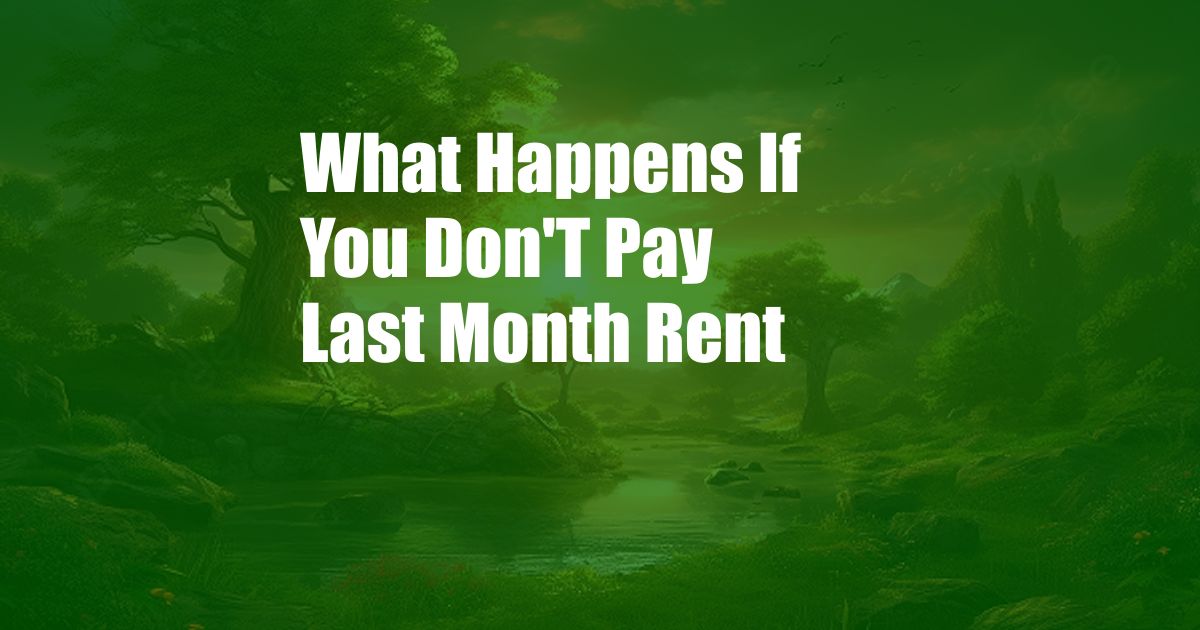
What Happens When You Don’t Pay Last Month’s Rent?
In the hustle and bustle of life, it’s easy to get sidetracked, but neglecting your rent payments can have severe repercussions. Failing to meet your financial obligations as a tenant can result in a cascade of negative consequences.
Late rent payments often incur late fees, adding an additional financial burden to your already strained situation. Depending on the terms of your lease, these fees can accumulate quickly, making it even harder to catch up on rent. Moreover, landlords typically report late payments to credit bureaus, which can negatively impact your credit score.
Consequences of Unpaid Rent
Eviction
The most dire consequence of unpaid rent is eviction. If you consistently fail to make your payments, your landlord may initiate eviction proceedings. This process involves legal action and could ultimately result in you being forced to leave your home.
Damage to Credit
As mentioned earlier, late rent payments are reported to credit bureaus. This can significantly lower your credit score, making it difficult to secure loans, credit cards, or even housing in the future.
Interest and Penalties
Unpaid rent often accrues interest and penalties, further increasing your debt. These additional charges can exacerbate your financial situation and make it even more challenging to catch up on rent.
Loss of Rental History
A consistent rental history is crucial for securing future housing. When landlords conduct tenant screenings, they typically review rental history. Unpaid rent and evictions can negatively impact your rental history, making it more difficult to find a new place to live.
Tips for Avoiding Unpaid Rent
Avoiding unpaid rent is essential for maintaining a stable living situation and protecting your financial well-being. Here are some tips:
Budgeting
Create a realistic budget that allocates a specific amount for rent and other essential expenses. Prioritize rent payments and avoid unnecessary spending.
Communicate
If you’re struggling to make rent, communicate with your landlord as soon as possible. Explain your situation and explore options such as a payment plan or a short-term break in rent.
Seek Assistance
Numerous resources are available to help tenants who are struggling financially. Contact local social services agencies, non-profit organizations, or housing counseling programs for guidance and assistance.
FAQ
Q: Can I be evicted if I am only one month behind on rent?
A: Yes, depending on the terms of your lease and the laws in your area, you can be evicted for being even one month behind on rent.
Q: What are some alternatives to eviction?
A: Some alternatives to eviction include payment plans, rent abatements, and relocation assistance. These options are typically negotiated between the tenant and the landlord.
Conclusion
Failing to pay rent can have far-reaching consequences. It can lead to eviction, damage your credit, and affect your ability to secure future housing. By prioritizing rent payments, communicating with your landlord, and seeking assistance when needed, you can avoid these negative outcomes and maintain a stable living situation.
Are you interested in learning more about tenant rights and responsibilities? Share your thoughts and questions in the comments section below.